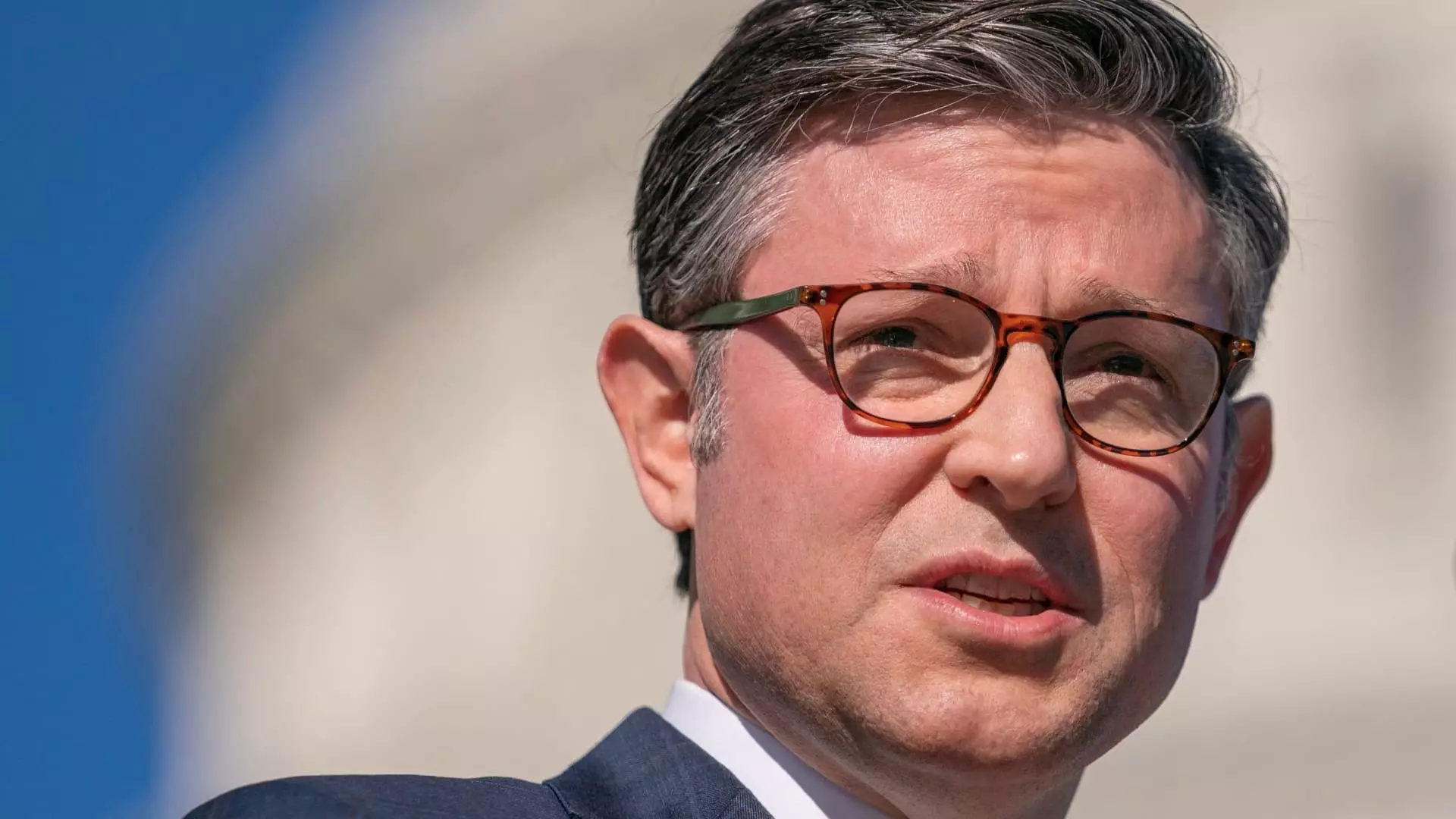The ongoing investigation into Matt Gaetz, who has recently been nominated as U.S. attorney general by President-elect Donald Trump, has sparked significant controversy, raising questions about legal ethics, congressional power, and accountability. House Speaker Mike Johnson’s public comments underscore the complex interplay of political maneuvering and substantive legal considerations that are at the heart of this matter.
The House Ethics Committee is probing several serious allegations against Gaetz, which include sexual misconduct, illicit drug use, and other potential violations of federal and state laws. This scrutiny became even more consequential following Gaetz’s abrupt resignation from Congress just two days prior to a scheduled vote on whether to publicly release the report by the committee.
Johnson, in his comments on CNN’s “State of the Union,” suggested that the investigation and its findings represent a “Pandora’s box” that could have unintended consequences if opened. He argued against the appropriateness of releasing a rough draft of the report, emphasizing that since Gaetz is no longer a sitting member of Congress, he is now a private citizen. This perspective raises fundamental questions about the scope of congressional ethics investigations—the committee’s reach is often limited to current members of Congress, yet the allegations laid against Gaetz are serious enough to warrant public consideration.
Gaetz’s resignation effectively halts the Ethics Committee’s investigation since its authority pertains primarily to members of Congress. This raises ethical conundrums about whether the protections afforded to him as a former member of Congress should shield him from scrutiny over serious allegations. Meanwhile, an attorney representing a woman who claims to have had a sexual relationship with Gaetz when she was a minor has publicly called for the release of the Ethics Committee’s report, suggesting that transparency is essential in cases involving such severe accusations.
This tug-of-war for information illustrates the underlying tension between political interests and the pursuit of justice. The Ethics Committee exists to uphold accountability, and withholding information raises concerns over whether due process is being voided for political expediency. Johnson argued that the Senate should not lean on an unfinished report for confirmation processes but instead conduct its own rigorous review—an assertion that speaks to the delicacy and complexity of legislative oversight.
Senator Markwayne Mullin from Oklahoma has contradicted Johnson by insisting that the Senate should indeed consider any findings from the House Ethics Committee during Gaetz’s confirmation proceedings. Mullin’s stance underscores a critical point: the Senate’s role in providing a check on executive nominees should involve a thorough vetting process that does not shy away from controversies surrounding their past actions.
As scrutiny on Gaetz intensifies, it is essential for the Senate to engage in comprehensive assessment while remaining unclouded by political loyalties or pressures. The ethical landscape surrounding the appointment of individuals with questionable histories poses risks not only to the integrity of the Department of Justice but also to public trust in governmental processes.
Gaetz’s earlier involvement in a federal investigation regarding sex trafficking has compounded public sentiment regarding his suitability for the role of attorney general. While that probe concluded without charges, the lingering shadow of those allegations highlights the ethical responsibilities that accompany high office.
As this complex case unfolds, it serves as a reminder of the essential role of ethics in governance. Scandals and accusations can severely impact public perception and institutional credibility. Moreover, they raise critical questions about how institutions enforce accountability and address allegations within and beyond their jurisdictions.
The multifaceted nature of the allegations against Gaetz, combined with political maneuvering and ethical considerations, paints a broader picture of the challenges confronting governmental institutions today. The interactions among various branches of government and the principles of accountability create a battleground where legality and morality often collide. As politicians navigate these turbulent waters, the principles of transparency and justice must remain at the forefront of national discourse.

